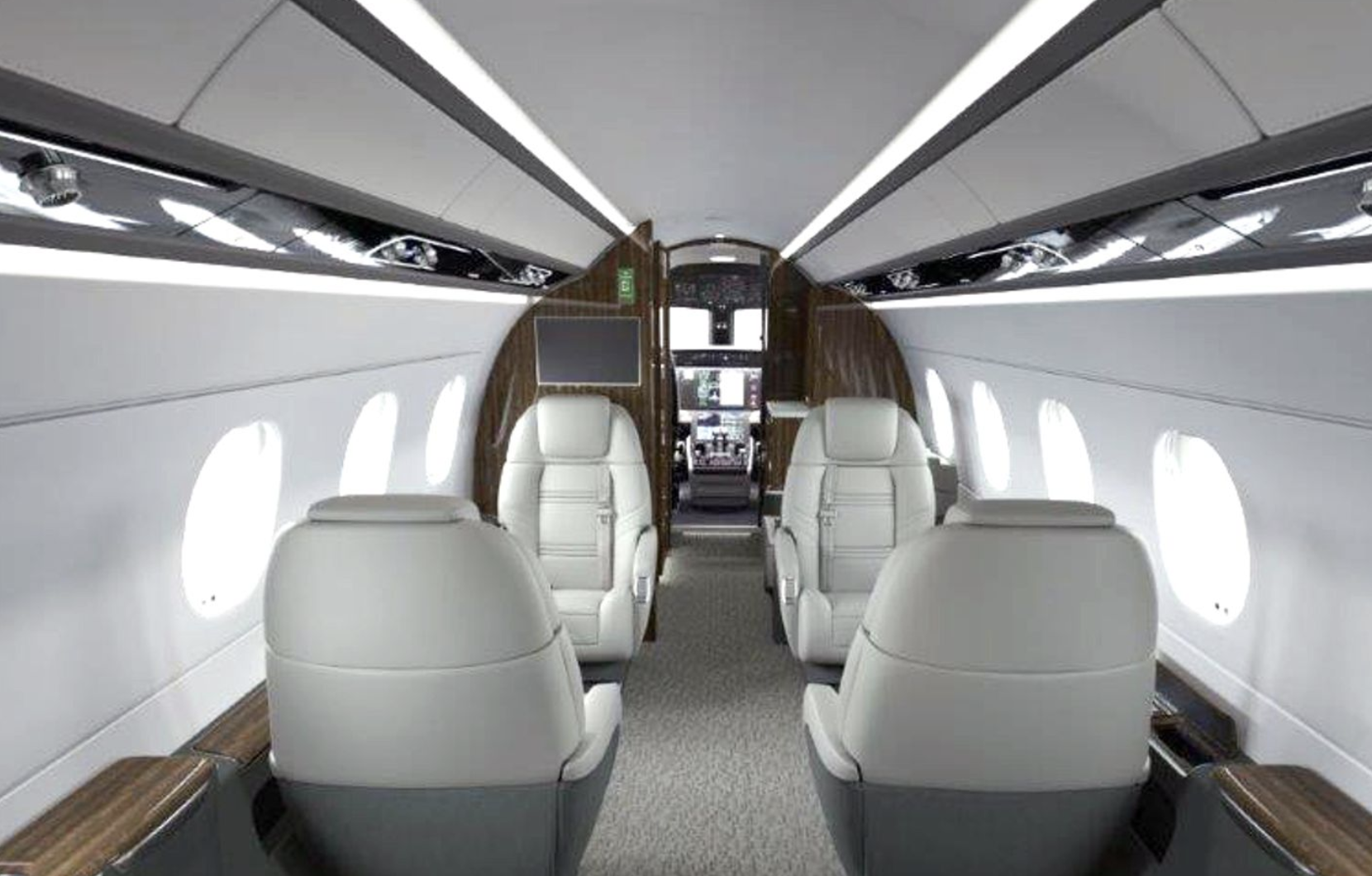Another private jet SPAC, Jet.AI, also known as Jet Token, is getting a buy rating.
While Maxim Group lists the 2021 start-up as speculative, it launched its coverage of the multi-faceted private jet flight provider and software company with a buy rating.
The target price is $5 per share.
Trading closed Friday at 92 cents per share, near its 52-week low of 90 cents and well off its high of $17.50.
Jet Token started by offering fractional shares in a fleet of three HondaJet aircraft before launching an off-fleet jet card in conjunction with Cirrus Aviation, which also operates its VLJ fleet.
It has a non-binding letter of intent to acquire Challenger 3500s from Bombardier, which would bring revenue via fractional sales.
Additionally, it manages a late model Citation let jet.
The company has also been developing a charter product, CharterGPT, based on artificial intelligence; hence, its name changed last year.
Other projects include B2B services enabling flight providers to track carbon offsets, reduce payment friction, reduce empty leg flights, and sell unoccupied seats on charter flights.
For consumers, the most interesting element of its jet card is the ability to pay a premium for guaranteed availability.
Jet.AI stock price outlook
According to Maxim Group:
We expect most revenue growth to come from fractional and whole sales of new jets added to Jet.AI’s fleet, combined with increased traction in the company’s core offerings. Revenue from fractional and whole jet sales represented 78.7% of total revenue in 2022. Prior, sales were for HondaJet Elites, which typically have a base price around $5.0M–$5.5M.
JTAI has a non-binding letter of intent to acquire five Challenger 3500 jets from Bombardier. The Challenger 3500 planes typically have a base price closer to $20.0M–$25.0M, which should significantly increase fractionalization revenue as these aircraft are added to the fleet. We expect purchase and delivery of these aircraft to begin in 2025 and project two jets being acquired and sold during the year. With each sale, the company also earns recurring monthly management fees, which we expect to increase jet card and fractional program revenue.
With the launch of CharterGPT and DynoFlight, additional software products coming to market, and increased brand awareness (boosted in part through a partnership with the Vegas Golden Knights), we expect increasing software/charter revenue and jet card revenue.
We project the company will generate $24M in revenue for each Challenger 3500 it sells and believe gross margins for fractional sales will be around 10%. For chartering and jet card revenue, we believe that gross margins will be between 5% and 10% and project organic growth of at least 20% each year as the company builds more brand recognition.
Newer software offerings like Reroute, Flight Club, DynoFlight, and JetCardGPT are targeted to other private aviation operators, and we expect that the margins from these products will be closer to traditional software gross margins of 90% or higher. We model revenue generation from these products beginning in 2024.
For 2023, we project revenue of $11.3M, down (48.5%) y/y, due to no fractional sales occurring during the year. Excluding jet sales, our revenue estimate implies growth of 142% y/y. We project service revenue of $2.2M, up from $0.2M in 2022, software/charter revenue of $6.2M, up 210% y/y, and jet card and fractional program revenue of $2.8M, up 25.0% y/y.
Due to the startup costs of bringing the CJ4 into operation and the company having a lower base of revenue, we project gross margins of 0.4% and an adjusted EBITDA loss of ($5.6M).
For 2024, we project revenue of $14.2M, up 25.9% y/y. We project service revenue increases 29.5% y/y to $2.9M, software/charter revenue up 26.0% y/y to $7.8M, and jet card and fractional program revenue up 22.9% y/y to $3.5M.
We expect gross margins to expand to 5.3%, benefiting from new software launches. Due to increased expenses from being a public company and the potential need to hire additional personnel, we estimate an adjusted EBITDA loss of ($6.0M) for the year.
In 2025, we expect delivery of two Challenger 3500 aircraft which we believe should contribute $24.0M in fractional sales revenue each, leading to revenue of $65.3M, up 360% y/y, and fractional sales revenue of $48.0M. We also expect continued traction in the other segments, leading to service revenue of $3.3M, up 14.7% y/y, software/charter revenue of $9.8M, up 25.0% y/y, and jet card and fractional program revenue of $4.2M, up 20.0% y/y. We expect gross margins to expand to 7.9%, benefiting from margins earned on fractional sales, and an adjusted EBITDA loss of ($2.2M) with positive adjusted EBITDA in the quarters where jets are sold.
In December, Jet.AI received a delisting notice from NASDAQ.
At the time, its Chairman, Mike Winston, told us a potential remedy was moving from the NASDAQ Global Market tier to its Capital Market tier.
Winston said, “We are on the NASDAQ Global Markets tier for mega-cap companies because that came with years of free services that far exceeded our listing fees (but also came with more stringent listing requirements). If we move onto the NASDAQ Capital Markets tier, there is ostensibly no operational difference, and the NASDAQ Capital Market’s easier standards may be a better match for a growing company our size.”
The report discloses that Maxim Group has received compensation from the former Jet Token over the past 12 months and expects to receive or intends to seek compensation from the company in the next three months.
82% of its ratings are buy, with 18% as hold.
Jet.AI was part of a quartet of flight providers going public in 2023, along with FlyExclusive, Surf Air, and Volato.
They joined Wheels Up and Blade.












